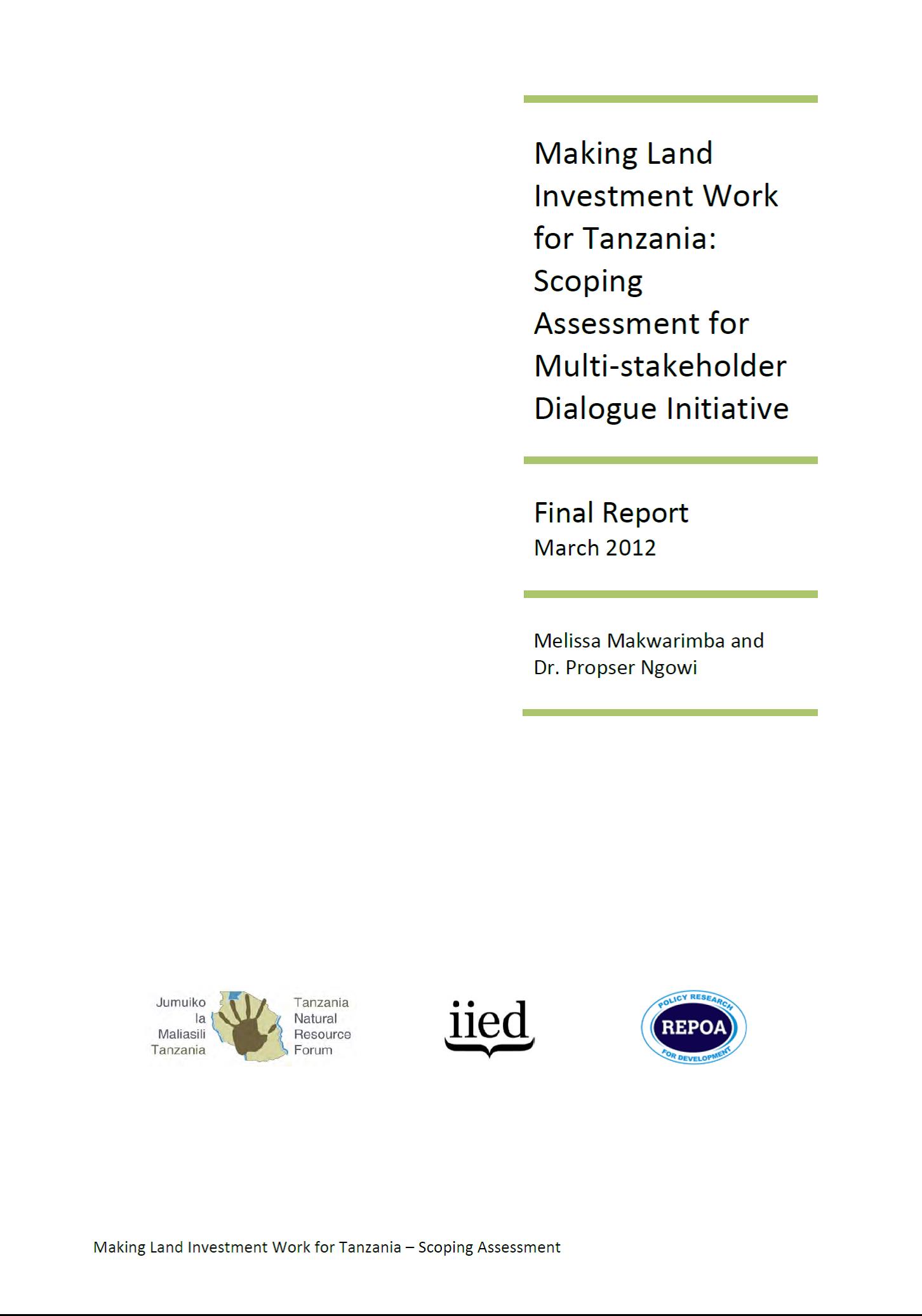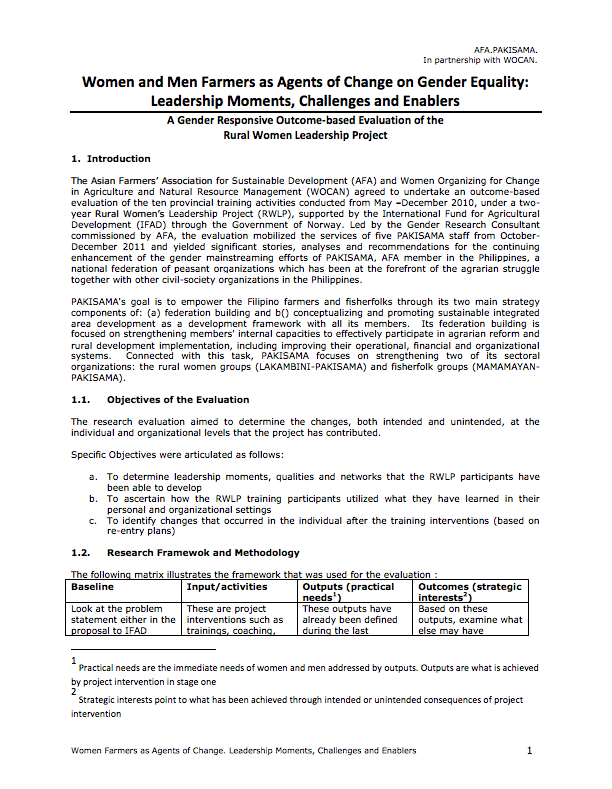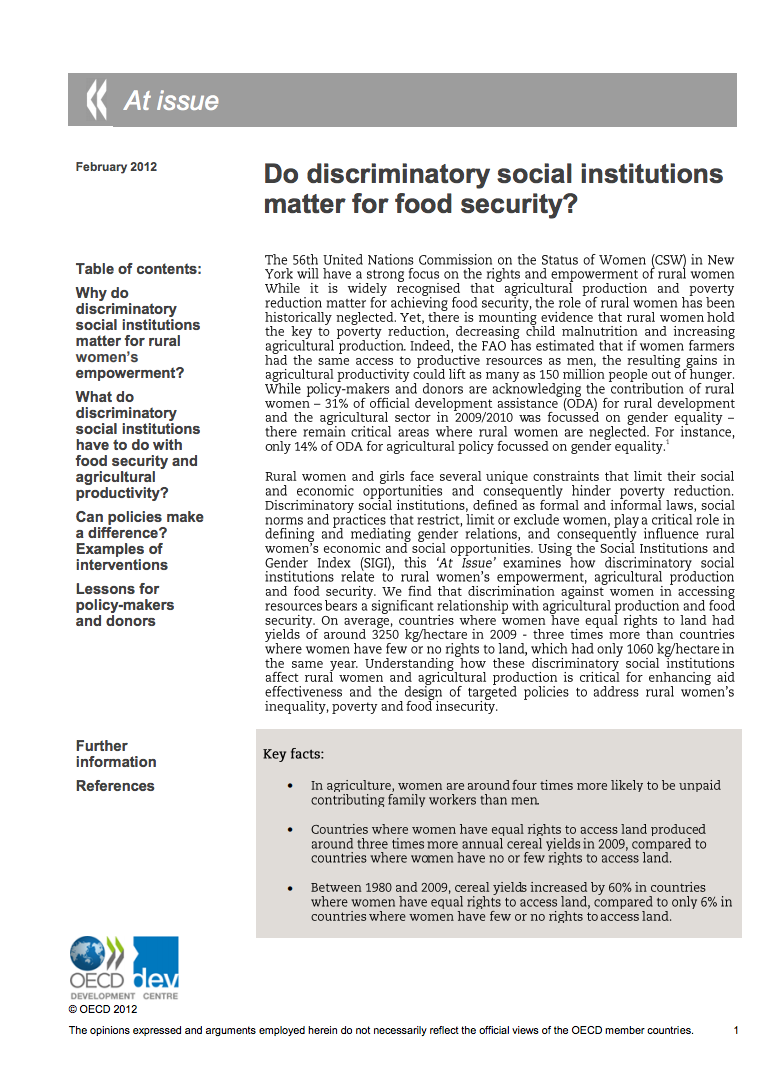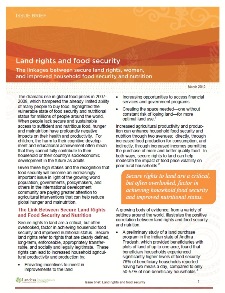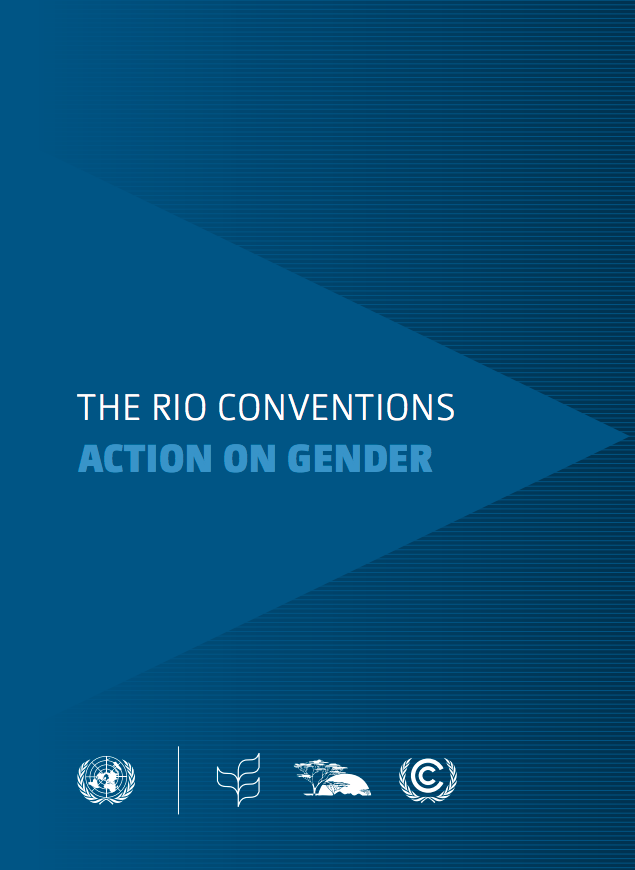How to Support Women’s Land Rights in Mozambique? Approaches and Lessons Learnt in the Work of Four Main Organisations
Contains introduction, the FAO Gender and Land Project with CFJJ, Forum Mulher in collaboration with partners, CLUSA: soy bean production and land rights, Norwegian People’s Aid with partners, recommendations. Draws attention to the need for a more concerted and focused initiative in Mozambique to support women’s land rights and recommends that Norway now responds to that challenge. The major challenge is to implement the Land Law. Individuals and communities need economic and political resources to be able to claim and secure legally established rights to land.


